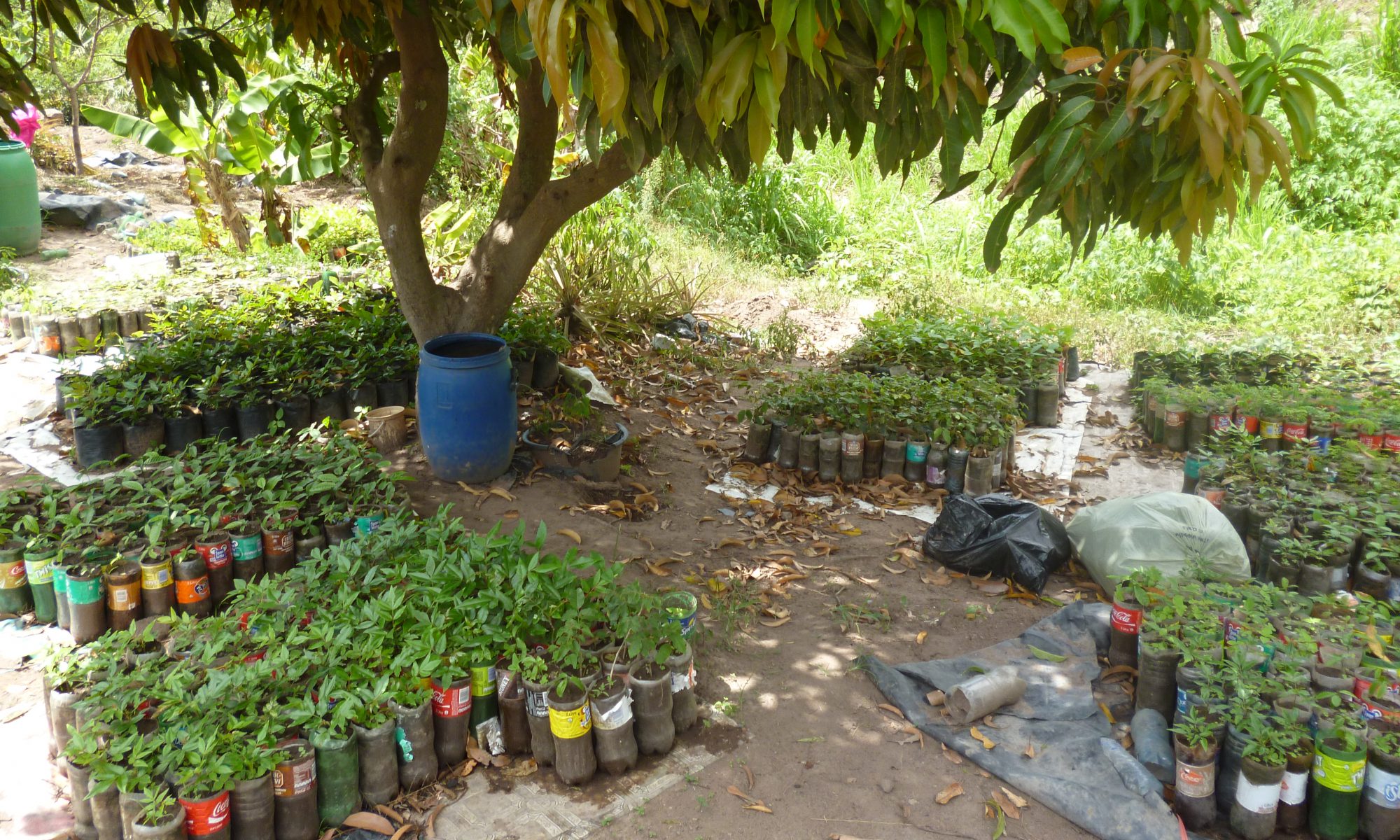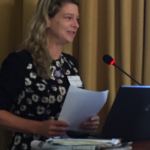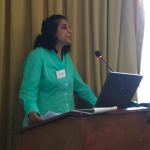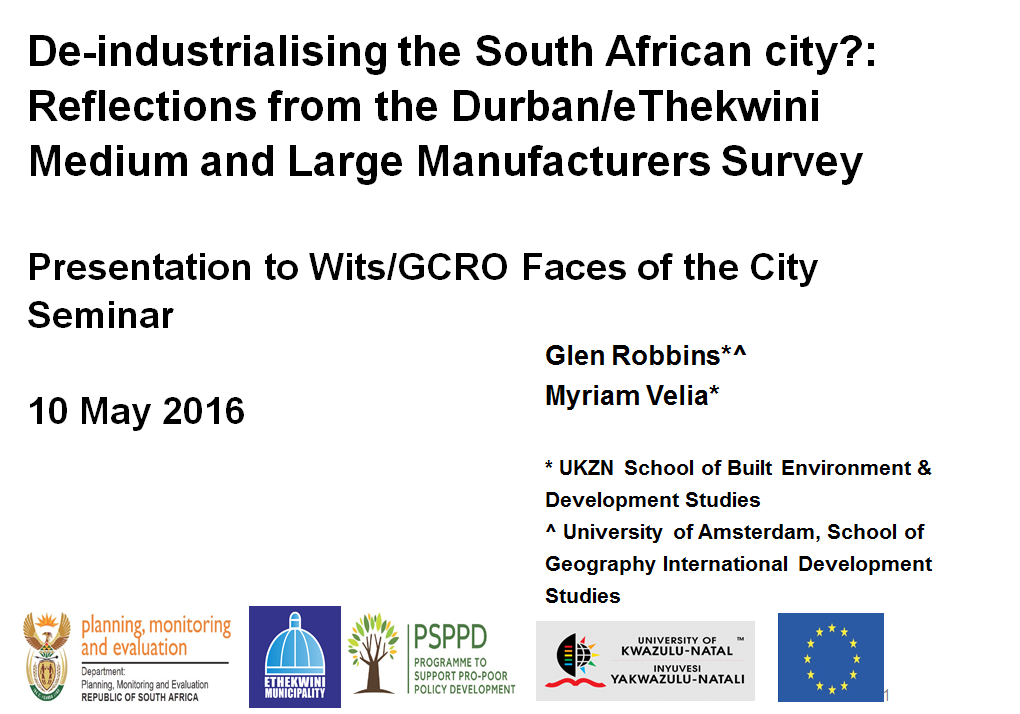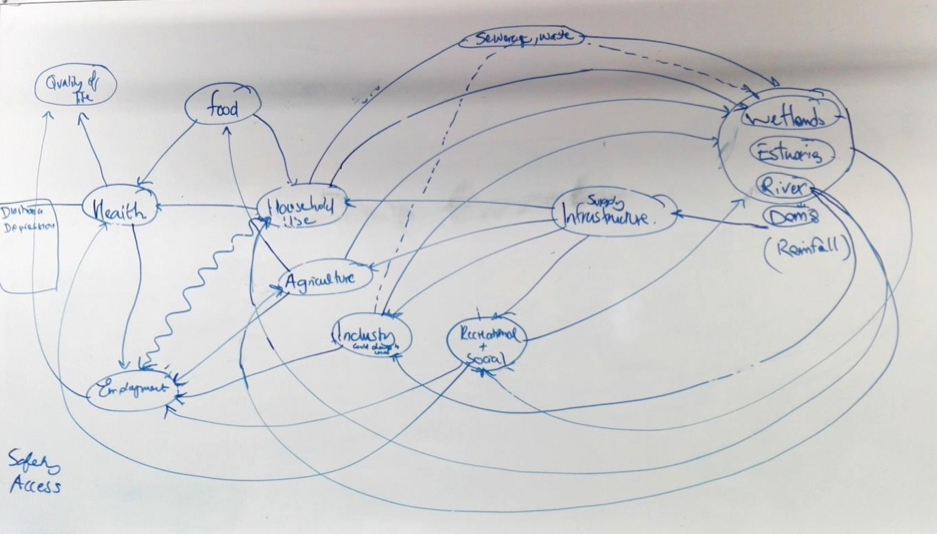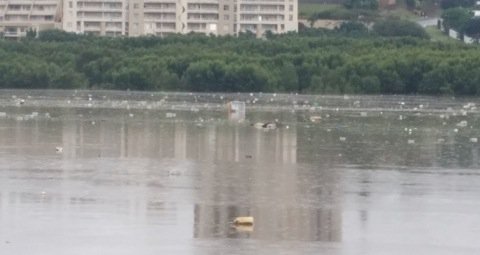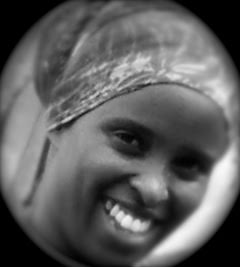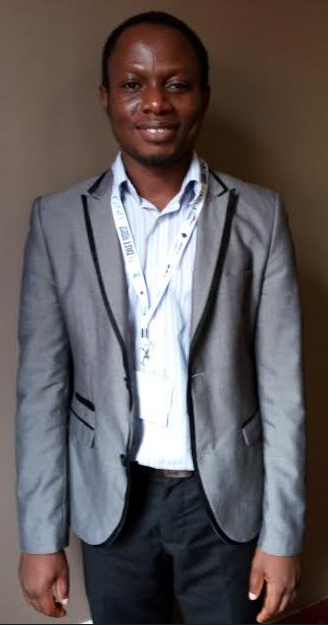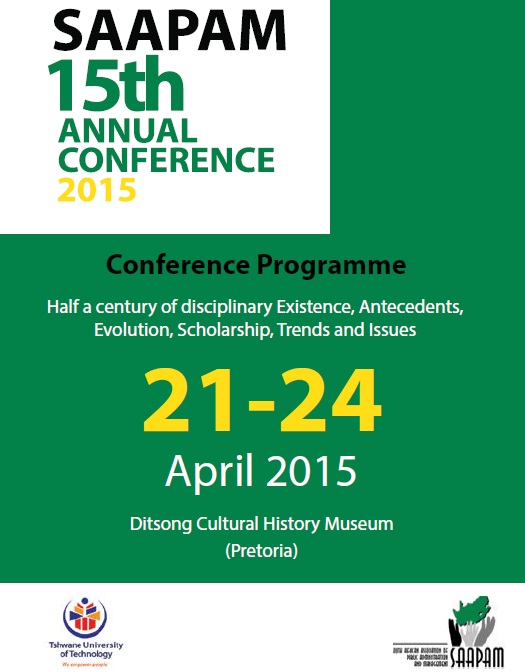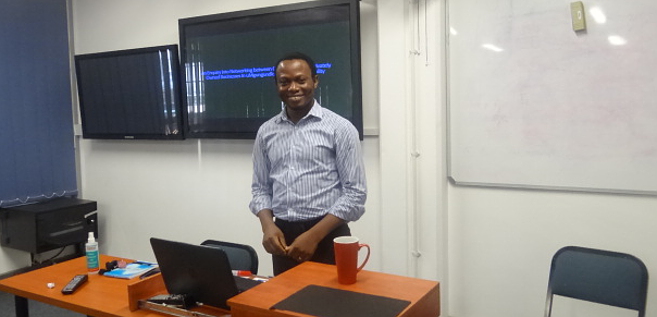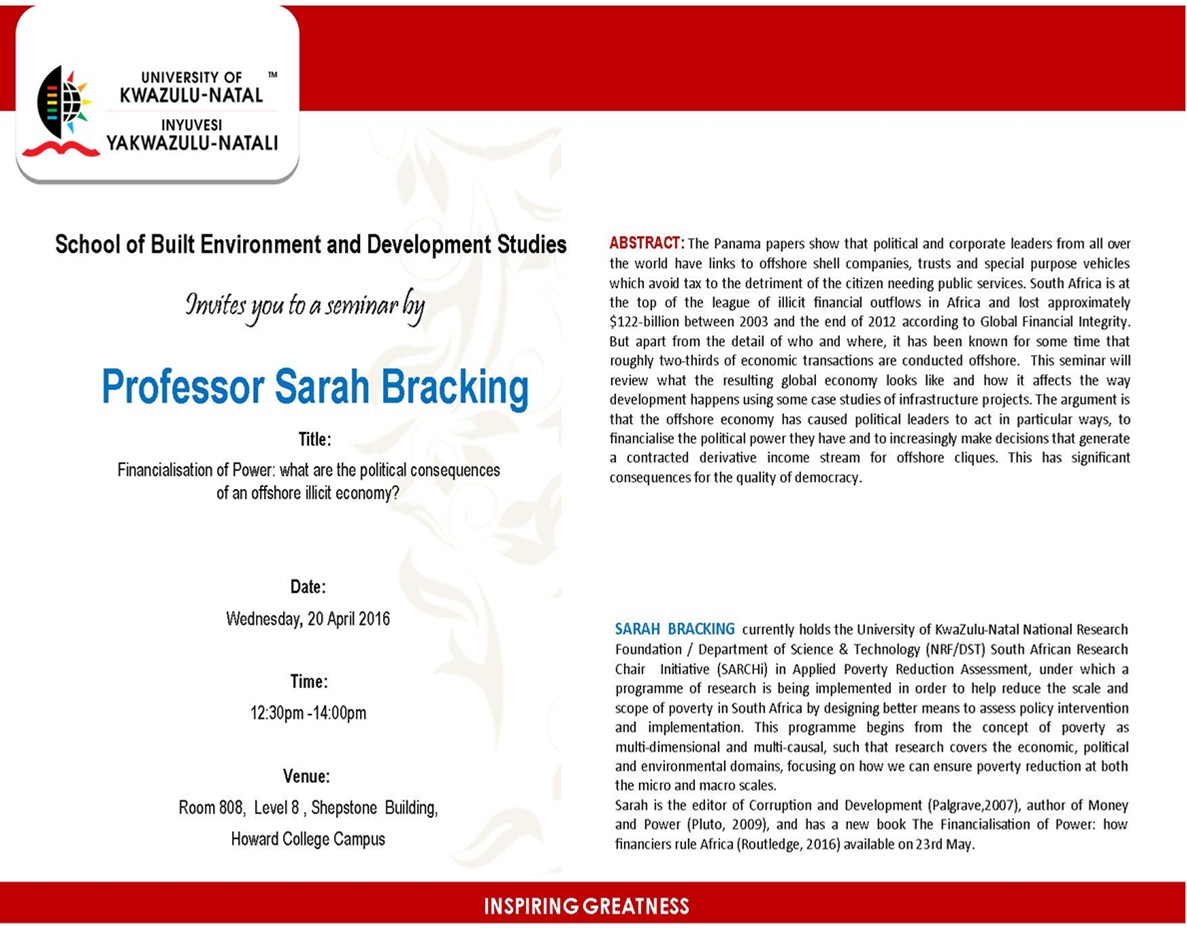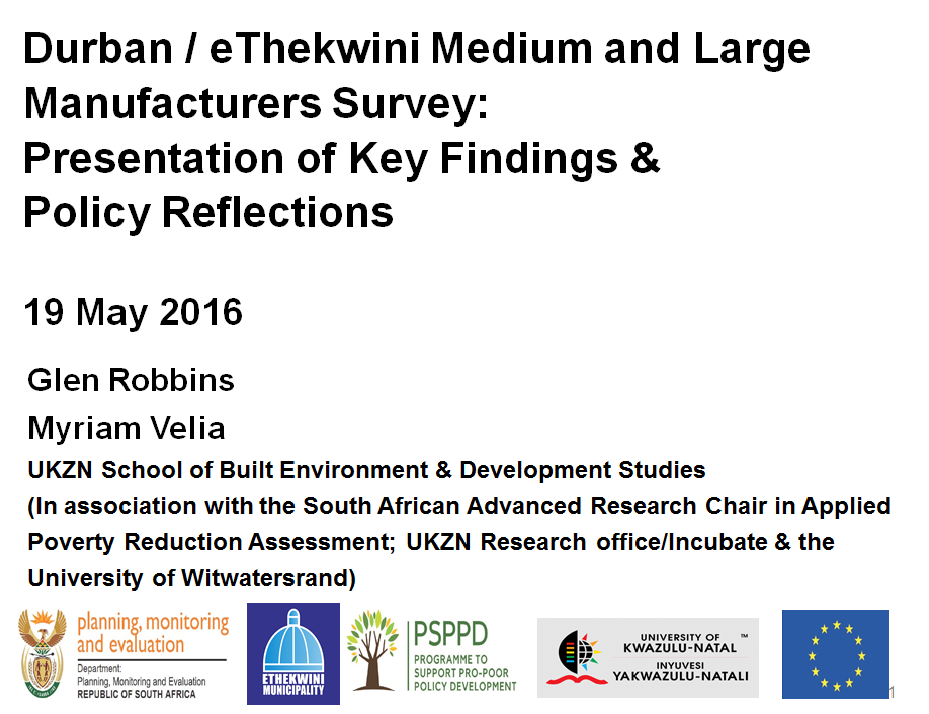
By Audrey Moyo
A breakfast stakeholder event for the Durban / eThekwini medium and large manufacturers survey results was held at the Durban Country Club on the 19th of May 2016. Approximately 60 stakeholders were in attendance, mostly from local government, manufacturing firms (some of whom took part in the Firm Survey) as well as media. The target audience was the public sector – mainly policy makers working with the local manufacturing firms, existing and potential business owners in the manufacturing sector as well as existing and potential employees in the manufacturing sector.
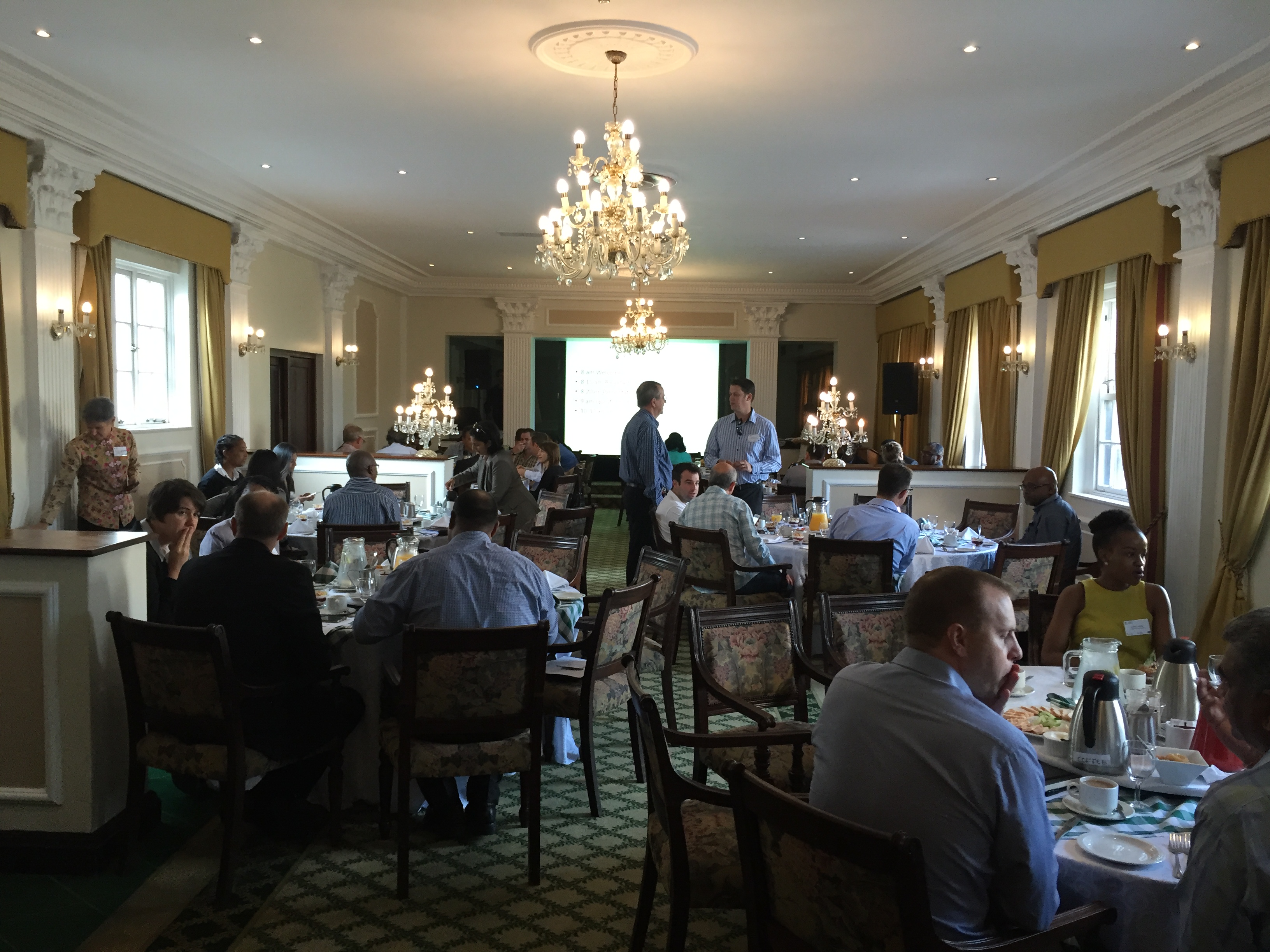
Several issues were raised particularly based off what firms participating in the survey identified as the major problems affecting their productivity. Among these issues raised, there were concerns of poor economic performance due to the decrease in the value of the rand to the dollar, lack of adequately skilled/trained personnel as well as other operational issues like load shedding. In the same manner, some of the major issues that were highlighted major constraints to growth included unavailability of technical/vocational labour skills, high costs of energy, low rates of economic growth in South Africa as well as the depreciation of the rand/dollar exchange rates.
The meeting was kicked off by greetings and an introduction by Glen Robbins (Senior Researcher), Prof Urmilla Bob (Dean of Research at UKZN) and SARChI chair holder Prof Sarah Bracking.
Glen then went on to explain the rationale for this survey. In comparison to other cities such as Johannesburg, studies show that eThekwini is especially dependent on manufacturing in terms of GDP contribution. However, Durban is often underrepresented in national studies. There was a lack of empirical evidence in the region and it is this limited data which the survey with its strong local focus aimed to fill.
Myriam presented the research showing that eThekwini Municipality had its main production sectors within food and beverages, clothing and textile, paper and furniture and chemical products which together account for 68%. Even though there were some declines, about 75% of all full-time employment in the municipality is still within firms with at least 45 full time employees. The data showed that most firms produced final goods that were sold to small as well as large and medium wholesalers and retailers in South Africa.
The survey findings indicate that for firms within eThekwini to expand employment by 10%, they have to ensure labour relations are more flexible, be guaranteed there is a sustained increase in the market demand for their products, but most importantly, a guaranteed supply of skilled workers. However, firms highlighted that it is not hard at all to recruit new staff or to fill in vacancies for labourers and related occupations but it is extremely hard to get skilled managers, professionals and technicians. This entails that there is a gap that exists between available vacancies, appropriate education to fill these vacancies and the available (un)skilled people.
Following the presentation, stakeholders were given the platform to ask questions and to share comments. Some of the inquiries that were made were directed towards local government – whether there were any sector support programs put in place and if they were making a difference and whether they are prioritizing areas of great need. To combat/address the issue of skills shortage/mismatch, it was suggested that there be institutional support programs where local government partners with institutions of higher learning and provide funding to individuals to enroll in technical related fields of study that are more relevant to the manufacturing and industrial sector. Small firms also reiterated that they wish to expand but they have not expanded over the years because they lack funding.
UKZN journalist, Melissa Mungroo also produced the following story:
Glen and Myriam at the May 2016 breakfast event
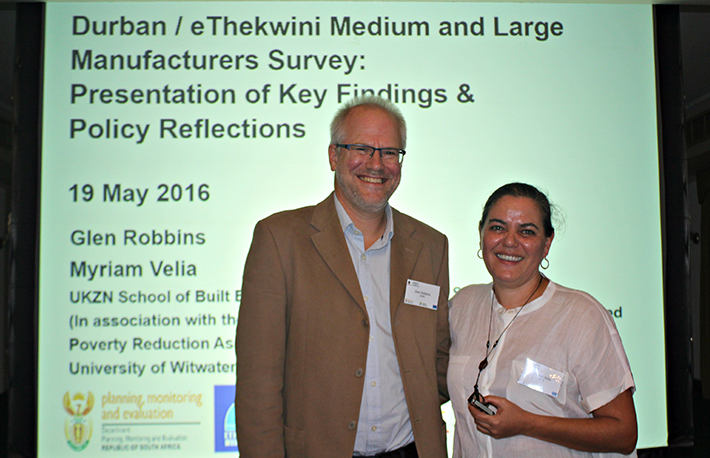
Photo credit: M Mungroo
